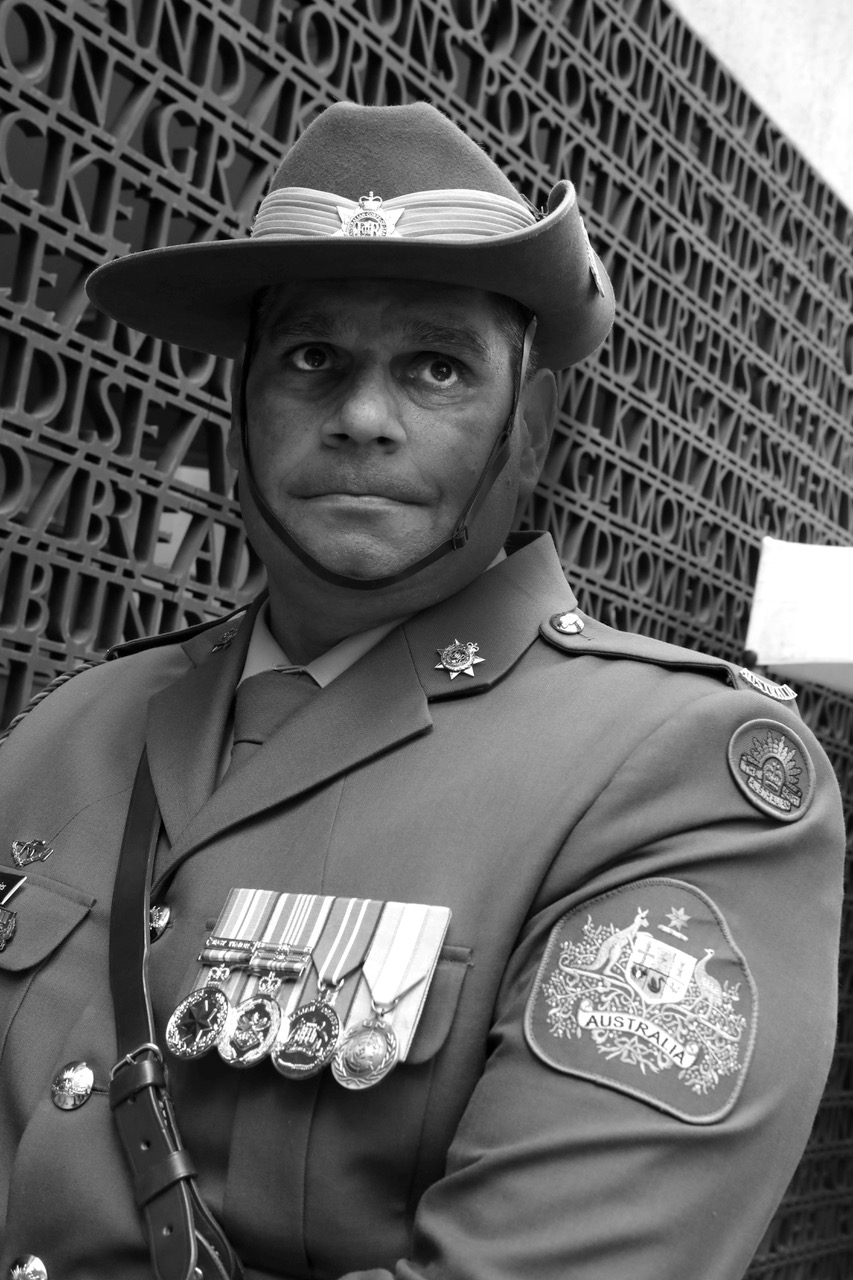Martin Davies
Lardil Mob – Mornington Island
Warrant Officer Class One WO1
Royal Australian Corps of Transport
Australian Army
Medals
Australian Active Service Medal with clasp East Timor
National Emergency Medal with clasp Bushfires
Defence Long Service Medal with first, second and third clasps
Australian Defence Medal
United Nations Medal (East Timor)
Force Commanders Commendation (UNTAET)
I was born in Townsville and spent my youth growing up in Sydney. I attended school from pre-school right through to Year 10 of high school. As a young Indigenous boy, my circle of friends in the inner CBD of Sydney (Newtown, Redfern) was broad due to different ethnic backgrounds. Back in the 80s, growing up, you had to be careful of not getting on the wrong side of the law. My upbringing was good; I had a Mother who was studying to be a teacher, putting herself through college, and later graduating from teachers college. As a single Mum of a young child, this could be seen back then as a challenging time, as society was not as accepting as it is today.
As I was growing up, I realised from an early age that I was adopted. This was easy to establish, as the rest of my extended family was white, and I was the only dark-skinned child and the youngest in the family. Later on in my life, I found my biological family, who lived on Mornington Island and all over the country. As I was finding my path in life for what I wanted to do, I first joined the State Emergency Service – South Sydney (SES), which was located down the road from where I lived. I had run into some mates I’d had in school, and they had told me about the SES and how good it was. This was my first exposure to being a part of a team and assisting others (Community) in times of need and disaster. I was assigned to a rescue section and quickly did my courses to enable me to be ‘On call’ when inclement weather struck.
This saw me achieve my very first award from an organisation that included many very competent members within the organisation. I was very humbled to receive the award and thanked my supervisors who had nominated me for it. I then recognised that I had the potential to achieve anything that I put my mind to and that being Indigenous was not going to stop me; it was going to be my driving force for whatever came my way.
I later ran into other mates (twins) that I had been to high school with, and they had both joined the Australian Regular Army. I commented on what they both did, with one letting me know he was a Paratrooper who jumped out of perfectly good aeroplanes, which I violently disagreed with, and the other had joined the Military Police. I asked them both if this was the best decision that they had made, and both nodded wisely and said ‘Yes’. At the ripe old age of 21 years old and now armed with the information I had about the Army, I made my way down to Defence Force Recruiting located in Castlereagh Street, within the Sydney CBD.
I underwent aptitude and drug testing and was informed that I would be notified around the two-week mark via a letter in the mailbox. The recruiter had informed me that I would be suited for the Army, and so started a nervous 14 days of monitoring the letterbox.
Finally, the letter arrived, and as I ripped it open, the first lines read, ‘Congratulations, you have been accepted into the Australian Army. Please report on this day with a suitcase in hand where you will be taken by coach to Wagga Wagga to commence your training at the 1st Recruit Training Battalion (1 RTB).’ This location would later be known by me as ‘Home of the Soldier’ and is deemed the rightful passage of all those who marched out of 1 RTB. After successful completion of my recruit training, I was allocated to the Royal Australian Transport Corps and completed my driver training down at the Army School of Transport, located in Puckapunyal, Victoria.
Now, looking back on my time within the Australian Army and my various postings as an Indigenous man, I reflect upon what I have achieved in my 30 years of service. I reached the rank of Warrant Officer Class One and attained the title of Regimental Sergeant Major. I have always been and still am an Indigenous mentor to those Indigenous and Torres Strait Islander soldiers who are starting their lives within the organisation, and I also reflect upon all those I have trained over the years as an Instructor and mentor. These reflections and memories of three decades of loyal and dedicated service and mateship will be what I carry in my heart when I retire. Life after the Army will see me throw a fishing line in the water and not feel guilty about doing something for myself, as I have for so long put others and this country before myself.
